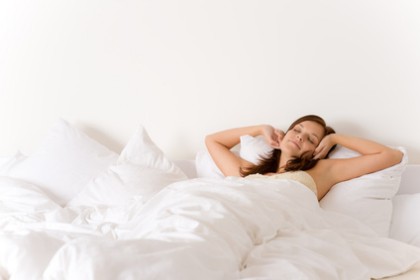London: Got a nagging question about your health? Are you planning a new fitness regime or are you interested in finding out more about a particular condition and relevant treatment options? If you are looking for reliable, personalised information about your health and lifestyle you can now find it at the new website, NHS Choices www.nhs.uk
Health advice is now the second most searched for subject online so it is no surprise that there is a lot of information of variable quality out there.
NHS Choices is a one-stop shop for all your health information that you can trust and that puts you in charge of decisions about your own health, lifestyle and even treatment options.
See how fit and healthy you are with a quick and easy personal health check and watch short movies from the experts and real people about their experiences of common conditions and treatments. Read honest accounts of how celebrities such as Steve Redgrave, Tricia Goddard, Rosemary Conley and Nik Powell, Richard Bransons co-founder of Virgin Records have overcome their own health problems. You can even become an expert with access to information only previously available to the medical profession.
Get motivated and take inspiration for a healthy life from Live Well, a series of online magazines featuring up to date articles, short movies and celebrity contributions to appeal to different groups such as women, teenagers, men and families.
Get great ideas for healthy eating with recipes from Emma Bunton, Nadine Coyle, Dannii Minogue and Myleene Klass and watch celebrity chefs cook up simple, healthy meals for the whole family and romantic nights in.
Find inspiration for a fitness regime that works for your age and lifestyle. Get active and take the Chelsea FC challenge, try walking your way to fitness and a great pair of legs or read how Olympic sprinter, Linford Christie has managed to stay fit and lean post retirement and post forty.
Learn our how to stay happy and healthy at work and see what the experts have to say about a mid life crisis. Is your urge for a newer model – car or woman due to brain or hormone changes or just bad behaviour.
Should you need to go to hospital NHS Choices gives you the information to make an informed decision about where and when you want to be treated. View ratings on hospital waiting times, cleanliness and readmission figures and for the first time what previous patients have to say about their treatment and experiences via immediate online feedback.
It is even possible for you to make your choice of hospital based upon personal preferences such as travelling times, MRSA incidences and availability of single sex wards.
Background:
1. The NHS Choices website draws on the combined experience and expertise of NHS.uk, NHS Direct, the National Electronic Library for Health, and the Healthcare Commission.
2. NHS Choices can be found at www.nhs.uk The site will continue to evolve and significant extensions are scheduled for later in 2007 and 2008.
3. The site will allow patients to access NHS approved information using a number of features under distinct headings:
Live Well
Information that will help the well to stay fit and assist those who are unwell to manage their condition
Magazine content will reflect the interests and needs of different groups such as teenagers, families and those over 70
Health A-Z
Access to a vast library of approved medical literature, previously only available to clinicians to enable a deeper understanding of conditions & treatment options
Easy to understand multi-media guides on the most common procedures e.g. hip replacement
Detailed guides to living with 20 long-term conditions such as diabetes to help patients manage their condition. Expert opinions from professionals and patients will provide advice and support
Choose Services
Authoritative, comparative data on the standards and availability of services
Searchable comprehensive directories e.g. on hospitals, GPs and care homes
A quality scorecard that will help patients and GPs together to identify the most appropriate clinicians and locations for their treatment
Your Thoughts
Patients will be able to directly comment and feedback on their hospital experience
All comments will be pre-moderated and references to named individuals will be removed
Hospitals will have the opportunity to respond to comments about their services.
 A survey conducted by a nutritional supplement company found that 71% were most likely to take a sicky in January. I doubt any of us are surprised by that revelation.
A survey conducted by a nutritional supplement company found that 71% were most likely to take a sicky in January. I doubt any of us are surprised by that revelation. 

